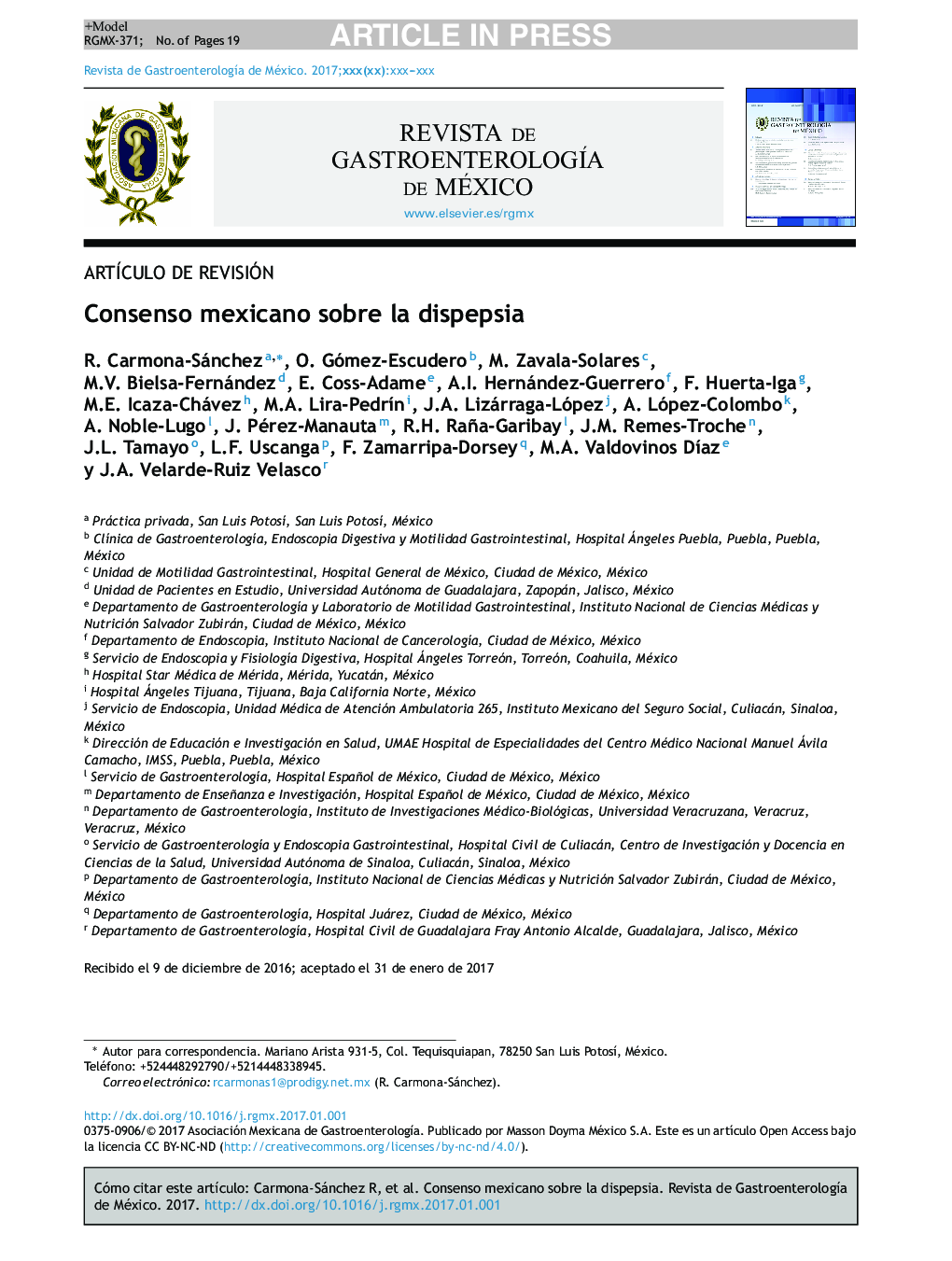| Article ID | Journal | Published Year | Pages | File Type |
|---|---|---|---|---|
| 8730891 | Revista de Gastroenterología de México | 2017 | 19 Pages |
Abstract
Since the publication of the 2007 dyspepsia guidelines of the Asociación Mexicana de GastroenterologÃa, there have been significant advances in the knowledge of this disease. A systematic search of the literature in PubMed (01/2007 to 06/2016) was carried out to review and update the 2007 guidelines and to provide new evidence-based recommendations. All high-quality articles in Spanish and English were included. Statements were formulated and voted upon using the Delphi method. The level of evidence and strength of recommendation of each statement were established according to the GRADE system. Thirty-one statements were formulated, voted upon, and graded. New definition, classification, epidemiology, and pathophysiology data were provided and include the following information: Endoscopy should be carried out in cases of uninvestigated dyspepsia when there are alarm symptoms or no response to treatment. Gastric and duodenal biopsies can confirm Helicobacter pylori infection and rule out celiac disease, respectively. Establishing a strong doctor-patient relationship, as well as dietary and lifestyle changes, are useful initial measures. H2-blockers, proton-pump inhibitors, prokinetics, and antidepressants are effective pharmacologic therapies. H. pylori eradication may be effective in a subgroup of patients. There is no evidence that complementary and alternative therapies are beneficial, with the exception of Iberogast and rikkunshito, nor is there evidence on the usefulness of prebiotics, probiotics, or psychologic therapies. The new consensus statements on dyspepsia provide guidelines based on up-to-date evidence. A discussion, level of evidence, and strength of recommendation are presented for each statement.
Keywords
Related Topics
Health Sciences
Medicine and Dentistry
Gastroenterology
Authors
R. Carmona-Sánchez, O. Gómez-Escudero, M. Zavala-Solares, M.V. Bielsa-Fernández, E. Coss-Adame, A.I. Hernández-Guerrero, F. Huerta-Iga, M.E. Icaza-Chávez, M.A. Lira-PedrÃn, J.A. Lizárraga-López, A. López-Colombo, A. Noble-Lugo,
